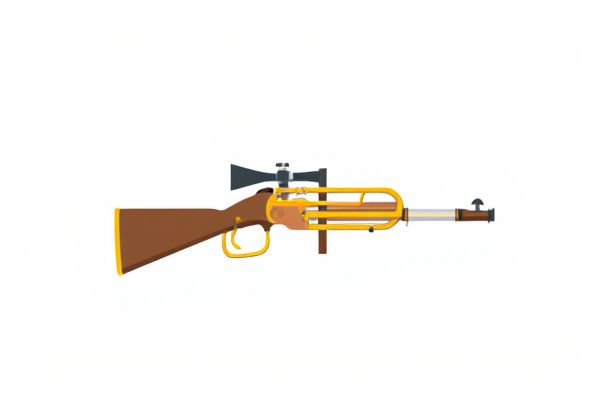
Discover endless musical possibilities with our Random Instrument Generator, designed to spark creativity and inspire your next composition. This intuitive online tool selects instruments across genres and cultures, perfect for musicians, producers, and educators seeking fresh sounds. Embrace the excitement of unpredictability and enhance your musical projects with unique instrument combinations.
Online tool for random instrument generator
We have prepared a random instrument generator for you to use and customize. You can enter your own list or use the provided samples for quick randomization. With just one click, you will receive a randomized list and a single value to utilize.Data Source
Single Result
Multiple Results
Introduction to Random Instrument Generators
Random instrument generators create varied musical instrument sounds by algorithmically selecting parameters such as timbre, pitch, and modulation. These tools enable composers and producers to explore unique soundscapes by generating unpredictable instrumental tones that inspire creativity. Incorporating machine learning models enhances the ability to simulate complex acoustic behaviors, offering more realistic and diverse audio outputs.
Benefits of Using Random Instrument Generators
Random instrument generators enhance musical creativity by providing unexpected combinations of sounds, inspiring new compositions and arrangements. They save time in the music production process by quickly offering unique instrument pairings that might not be considered manually. Musicians and producers can explore diverse genres and styles, expanding their sonic palette and fostering innovation.
Key Features of Popular Random Instrument Tools
Popular random instrument generators offer key features such as extensive sound libraries, customizable settings for instrument range and style, and real-time audio preview capabilities. These tools often include algorithm-based randomness to ensure varied and unique instrument selections tailored to user preferences. Integration with digital audio workstations (DAWs) and support for multiple file formats enhance workflow efficiency for musicians and producers.
Applications in Music Composition and Education
A random instrument generator enables composers and educators to explore diverse sonic textures by automatically selecting instruments from extensive sound libraries, fostering creativity and experimentation in music composition. In educational settings, this tool aids students in understanding orchestration, timbre, and instrumentation by offering randomized combinations for analysis and practice. Integrating such generators into digital audio workstations and learning platforms enhances interactive learning experiences and broadens compositional possibilities.
Inspiring Creativity with Instrument Randomization
Random instrument generators spark creativity by offering unexpected combinations of sounds that challenge traditional composition boundaries. By introducing diverse and unconventional timbres, these tools encourage musicians to experiment and discover fresh musical ideas. Incorporating instrument randomization enhances the creative workflow, leading to innovative melodies and unique sonic textures.
Notable Random Instrument Generators Online
Notable random instrument generators online include Chrome Music Lab's "Random Drums," which offers an intuitive interface for creating unique percussion patterns, and Incredibox's randomizer feature that crafts diverse beatbox tracks by blending various sound effects. Another popular tool is MusicMap's instrument generator, capable of selecting from an extensive range of traditional and digital instruments to inspire composition. These platforms utilize algorithm-driven selection to provide users with fresh instrumental ideas for music production and experimentation.
Integrating Random Generators into DAWs
Integrating random instrument generators into Digital Audio Workstations (DAWs) enhances music production by introducing automated creativity through algorithmic sound selection and unpredictable timbre variations. These generators employ MIDI randomization and parameter modulation, enabling producers to explore unique sonic textures without manual programming. Leveraging plugins compatible with popular DAWs like Ableton Live, FL Studio, and Logic Pro X streamlines workflow and expands experimental compositional possibilities.
User Experiences and Success Stories
Users of random instrument generators often report enhanced creativity and inspiration during music composition, experiencing fresh ideas that break routine patterns. Success stories highlight musicians discovering unique sounds and combinations that led to chart-topping hits or innovative album projects. Positive feedback emphasizes the tool's ability to spark experimentation, resulting in increased productivity and artistic growth.
Limitations and Considerations
Random instrument generators often face limitations in sound accuracy and timbral variety, as they rely on preset algorithms that cannot fully replicate the complexity of real instruments. Considerations include the lack of dynamic expressiveness and subtle articulations, which affect realism and musical authenticity. Users must also account for compatibility with digital audio workstations and potential latency issues during real-time performance.
Future Trends in Instrument Generation Technology
Future trends in random instrument generators emphasize integration with AI-driven algorithms to create more personalized and adaptive soundscapes. Advances in machine learning enable real-time modulation and intricate pattern recognition, enhancing the unpredictability and expressiveness of generated instruments. Cloud-based platforms and increased computational power facilitate collaborative creation, expanding the scope of virtual instrument diversity and accessibility.
 azrandom.com
azrandom.com